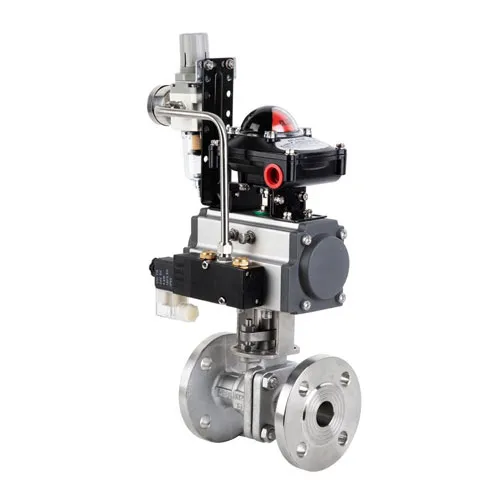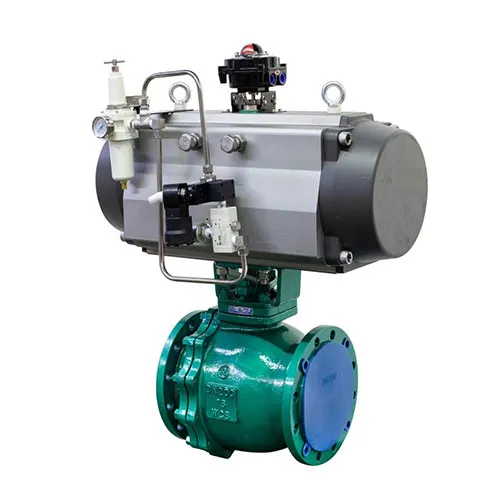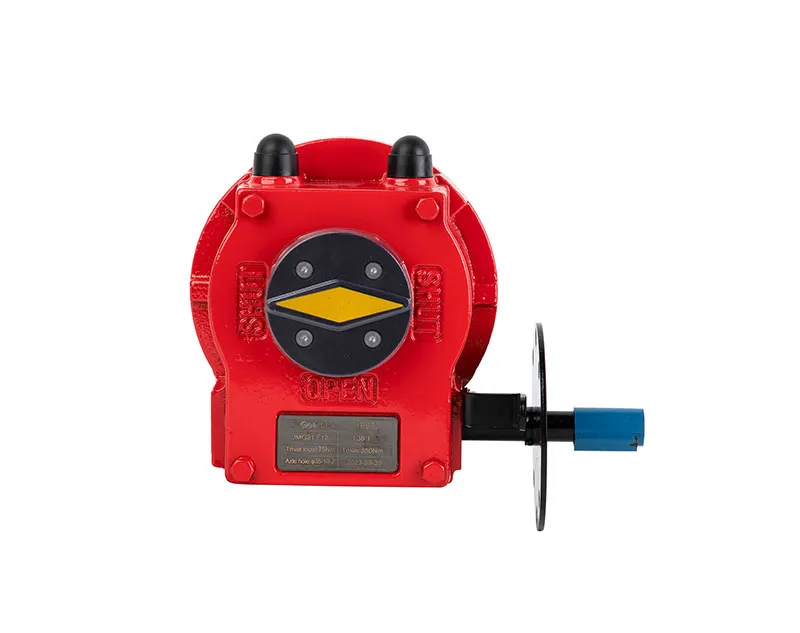The Benefits of Pneumatic Ball Valves
Pneumatic ball valves are indispensable components of contemporary industrial systems, providing numerous advantages over conventional valve types. They are the preferred option in industries such as oil and gas, chemical processing, water treatment, and automation due to their operational efficiency and distinctive design. The following are the primary benefits of pneumatic ball valves:
1. Dependable and Prompt Operation
In order to facilitate rapid opening and closing, pneumatic ball valves utilize compressed air to operate the valve. This rapid response is essential in applications that necessitate precise flow control and emergency shutdowns, as it enhances process efficiency and minimizes delay.

2. Long Service Life and High Durability
Stainless steel, brass, or PVC are the materials used to construct pneumatic ball valves, which are highly resistant to corrosion, erosion, and extreme temperatures. Their minimal moving elements and straightforward design guarantee long-term reliability with minimal maintenance.
3. Superior Sealing Capabilities
The ball valve's snug sealing mechanism, which is frequently improved with PTFE (Teflon) seats, effectively prevents leakage in high-pressure environments. This renders them optimal for applications that involve hazardous or sensitive fluids and necessitate leak prevention.
4. Low-Maintenance Needs
Pneumatic ball valves have fewer components that are susceptible to deterioration in comparison to gate or globe valves. This guarantees uninterrupted operation for prolonged periods by decreasing the frequency of maintenance and the corresponding expenses.
5. Application Versatility
Pneumatic ball valves are capable of managing a diverse array of media, such as liquids, gases, and slurries. Depending on the configuration (e.g., full-bore or reduced-bore), they are appropriate for both on/off and throttling applications.

6. Energy Efficiency
Pneumatic actuators are more energy-efficient than electric actuators, as they only consume energy during valve actuation, as opposed to continuously, which results in reduced operational costs.
7. Automated and Remote Control
Automated control systems can effortlessly incorporate pneumatic ball valves, which facilitate remote operation through SCADA systems or PLCs (Programmable Logic Controllers). This automation improves the accuracy of the process and minimizes the need for manual intervention.
8. Compact and Lightweight Design
Pneumatic ball valves are relatively compact in comparison to larger valve types, which makes them simpler to install in confined spaces without sacrificing performance.
9. Cost-Efficiency
Pneumatic ball valves provide a cost-effective solution for industries that require reliable flow control without incurring excessive expenditures due to their efficient operation, low maintenance, and extended lifespan.
In conclusion,
Pneumatic ball valves are essential in contemporary industrial processes due to their combination of efficiency, durability, and speed. The optimal performance of their products in a variety of applications is guaranteed by their capacity to provide tight sealing, minimal maintenance, and seamless automation integration. Pneumatic ball valves continue to be the preferred choice for fluid control systems as industries prioritize reliability and efficiency.









